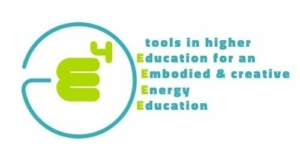JUST ACTION – TEACHERS AND STUDENTS TOWARDS A SUSTAINABLE TRANSITION
Action on Global Citizenship – empowering student voices for climate action at primary and post primary level
Project number: 2021-1-IE01-KA220-SCH-000031615
Lead Partner
Global Action Plan Ltd. (Ireland)
Programme
Erasmus+ Programme – KA2 Cooperation partnerships in school education, Call for Proposals 2021
Brief description
Action on Global Citizenship (AOGC) is a programme that aims to empower teachers in primary and secondary/high schools to engage their learners critically in the theme of climate action through a Global Citizenship Education (GCE) lens and to support learners in taking relevant, meaningful action to the climate issues they encounter.
The project stems from a growing awareness of the globalised and interconnected nature of climate action and the need for systemic change starting with young people, supporting the UN Sustainable Development Goals and Climate Action.
Creating the space for exploration within the school environment will enable students to actively engage in transforming the world around them for the better.
In this context, a partnership of environmental education organisations from the GAP International Network from Italy, Ireland, Spain and Norway have designed the Action on Global Citizenship programme to support the acquisition of knowledge (head), values & attitudes (hearts) and skills for action (hand) so learners can take appropriate actions to address climate and sustainability challenges.
Given the ability to reach a large number of learners and their influence as educators, the programme has a strong focus on supporting teachers.
Objectives
The overall project objective is to implement a sustainable, scalable Global Citizenship Education programme at primary and secondary that has been designed and piloted through a participatory design methodology and will reach teachers and learners across the programme countries.
Specific objectives of the programme are:
- to provide appropriate educational resources for primary and secondary teachers and their students
- to provide a training programme for teachers at both levels, supported by an online Resource and Learning Platform for teacher and student access
- to make learners feel empowered to participate as an active global citizen and take action on climate and sustainability issues and challenges that matter to them most
- to create greater opportunities for school to school collaboration via eTwinning
- to grow, scale and sustain the programme through the regional education systems in each country, thus increasing access of the programme to schools, teachers and learners nationally and transnationally
- to build capacity of the programme partners to manage the design life cycle of educational programmes
Activities
- Secondary School Action on Global Citizenship Programme: a toolkit that supports teachers in secondary schools to guide learners together in tackling local issues identified by learners that are related to the climate crisis and exploring them critically through a global lens and collectively creating meaningful actions and campaigns that address these issues. Included will be a student workbook that will support learners during the programme.
- Primary School Action on Global Citizenship Programme: a toolkit that supports teachers in primary schools to guide learners together in tackling local issues identified by learners that are related to the climate crisis and exploring them critically through a global lens and collectively creating meaningful actions and campaigns that address these issues. Included will be a student workbook that will support learners during the programme.
- Action on Global Citizenship Teacher Training Programme: the programme will support primary and secondary school teachers and give them the competencies to integrate the GCE programme in their teaching and learning practices. The deliverables for this output will be in the form of training materials (presentations, activity books, learning resources, support videos) and support documents for the programme such as learning outcome documents, lesson plans and administration forms.
- Action on Global Citizenship Resource and Learning Online Platform: resource platform for schools to access a comprehensive repository of open education resources and learning materials that will support the teaching and learning process as they undertake the Action on Global Citizenship programme in their school. The platform will be multilingual in English, Spanish, Italian and Norwegian. Designed into the overall programme will be an emphasis on international school collaboration using eTwinning.
Expected outcomes
- The Action on Global Citizenship programme piloted in 8 primary and 8 secondary schools, with 32 teachers and up to 1000 learners
- 200 teachers trained in Action on Global Citizenship training
- 12,000 learners reached by the programme and connecting to other European students via eTwinning
Target group
The main target groups and beneficiaries of the project are students, teachers and school managers from primary and secondary schools.
Partnership
Lead partner: Global Action Plan Ltd. (IE)
PP1: Framtiden i våre hender (NO)
PP2: ASOCIACION PLAN DE ACCION GLOBAL PARA LA TIERRA GAP ESPANA (ES)
PP3: InEuropa Srl (IT)
Duration
The project has a duration of 36 months (from 01/11/2021 to 01/11/2024)
EU grant
The project has a total cost of di 258,538.00€



